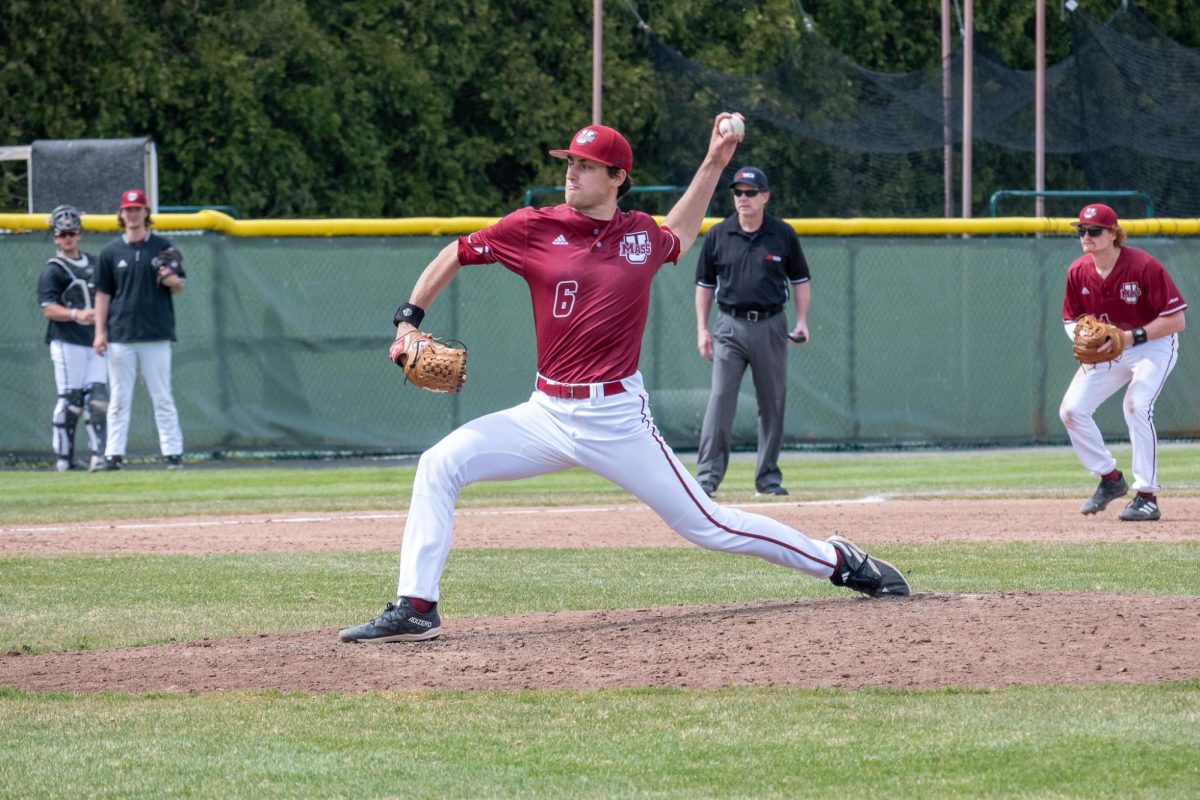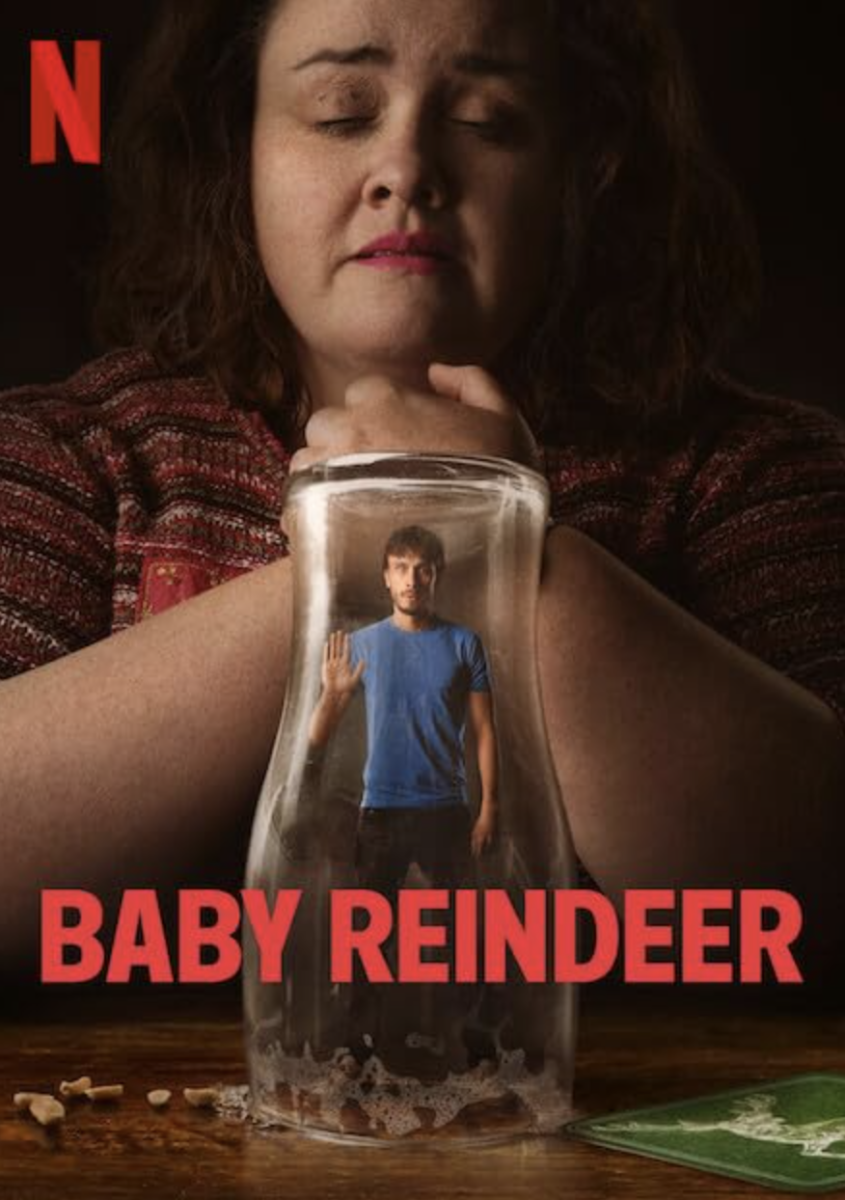The Massachusetts Supreme Judicial Court ruled in favor of same-sex marriages last week, inspiring debate among legislators at the State House, and students at the University of Massachusetts Amherst.
However, for UMass graduate student Nancy eProsse and her partner, Flo Stern, this debate is not just academic.
The couple shares three adopted children: two teenaged daughters and a 19-year-old son. They consider themselves an average New England family, although the Massachusetts legislature has yet to recognize their union.
“We have three kids, a dog, a house and a minivan,” Stern said. “How much more traditional can you get?”
Although public opinion is still divided about same-sex marriage, a majority of Massachusetts’ residents believe that deProsse and Stern deserve the same civil benefits as heterosexual couples.
According to a public opinion poll by the Boston Globe and WBZ-TV – the first conducted among Massachusetts residents since the Supreme Court decided in the Goodridge v. Dept. of Public Health case – 50 percent of the 400 people surveyed supported the ruling while 38 percent disagree with the decision. A Massachusetts Daily Collegian survey conducted among 200 University students garnered much different results; 76 percent agree with the Goodridge case ruling, while 17 percent disagree with the decision. Seven percent said they didn’t care.
Among the 17 percent who disagree with the Supreme Court ruling are members of the Republican Club, and members of the religious community, including Father Richard Cleary of the Newman Center, a Catholic community center and chapel.
“My feeling is you’re redefining what marriage is,” Cleary said. “Marriage is between a man and a woman.”
Father Cleary went on to say that he supports civil unions and has “many good friends” that are gay and lesbian. However, he is taking the position of the Catholic Church and “cannot condone homosexual activity.”
According to the Vatican’s statement on same-sex unions, marriage exists to facilitate procreation among men and women, and same-sex unions don’t serve God’s plan for humanity. Cleary and the Vatican cite the passage in the Old Testament where God commands man and woman to “be fruitful and multiply” as evidence for their positions on same-sex marriage.
Members of the Republican Club echoed many of Father Cleary’s concerns, but also expressed dismay over what they believe is judicial legislation.
“[The Supreme Court has] overstepped their bounds,” said David E. Peterson, Republican Club President. “Hopefully a constitutional amendment will be passed.” Peterson went on to say that around 95 percent of his club’s members are also against the ruling.
“It’s not marriage,” said Olaf Aprans, chairman of the Silent Majority and a Republican Club member. “No matter what laws are passed.”
DeProsse, a graduate student with the Center for Public Policy, responded to charges of judicial legislation and redefinition of marriage.
“We have a three-part government for a reason; they all have a role,” she said. “The Supreme Court’s role is to interpret the law. That’s what they did. They told the legislature ‘you need to change the laws,’ but they [the court] didn’t change anything.”
“It’s not redefining marriage,” Stern said. “It’s interpreting the state constitution. The constitution doesn’t say that marriage is between and man and a woman.”
Dave Mason, President of the University Democrats, said the Supreme Court acted appropriately and the legislature should fulfill its responsibility to create same-sex marriage legislation within the court’s 180-day deadline.
“This is a civil rights issue, plain and simple,” Mason said. “By denying human beings the right to marry, we are allowing the state to create a second-class of citizens. We don’t do it based on race or gender, we shouldn’t do it based on sexual orientation, by cloaking bigotry with family values.”
Stern also views same-sex marriage as a civil rights issue.
“This kind of debate went on about interracial couples, but that has become a non-issue at this point,” Stern said. “Gays and lesbians have to take up the gauntlet. I hope this will be a non-issue as well.”
UMass responded to inequities between same-sex domestic partners and heterosexual married couples by extending as many benefits as possible to gay and lesbian couples while remaining in accordance with state law.
Currently, domestic partners who register as such with the Dean of Students Office are eligible for family housing, tuition waivers, family sick leave, bereavement leave, family and medical leave, university child care, use of library facilities, athletic tickets and use of athletic facilities.
What University employees, other than members of GEO and undergraduate students, are not eligible for is health insurance. Associate Dean Eileen Stewart said state law bars the University from giving insurance benefits to same-sex domestic partners who are employees. Since student employment benefits are under the control of UMass rather than state law, domestic partners of University students are covered by their significant other’s school health insurance plan.
DeProsse is currently a graduate student, and therefore, Stern is covered by her health insurance and other University benefits. However, the couple is concerned about moving after DeProsse graduates from UMass.
“I’m going to be hospitalized in Boston and only members of my immediate family can visit me – Nancy isn’t considered part of my immediate family,” Stern said. “This isn’t a problem in Amherst, but it is other places.”
DeProsse said she feels limited in her options since most employers do not grant domestic partnership benefits to her family.
In light of the Goodridge decision, couples like deProsse and Stern might find they have new and varied employment opportunities, at least in Massachusetts. The Federal government passed the Defense of Marriage Act in 1996 that defines marriage as between a man and a woman, and provides that no state has to recognize same-sex marriages or unions that take place in other states.
The Massachusetts legislature has six months to decide the fates of thousands of couples like DeProsse and Stern, and they may not decide on marriage. Charles J. DiMare, director of the Student Legal Services Office, said the legislature will probably agree to something more like the civil unions in Vermont.
“[That’s] making a big assumption…that lesbians, gays will be able to get married,” DiMare said. “That might not be what happens. What’s more probable are civil unions.”
DiMare added that he hasn’t read the case thoroughly, so he couldn’t comment on the specifics of the decision.
Judith Holmes, Legal Studies professor and a former defense attorney, disagrees.
“It doesn’t appear in this case that civil unions would apply,” she said. “This is a good, positive step, but all the case says is the legislature cannot deny couples access to a civil marriage.”
Holmes has added the latest Goodridge v. Dept. of Public Health decision to the required reading for her legal writing course, although same-sex marriage cases have been part of her curriculum for several semesters.
While the political, moral, religious and legal debates over same-sex marriage and the Goodridge decision continue in the State House, classrooms and living rooms, deProsse and Stern are planning their wedding; a rabbi at the Jewish Center of Amherst will perform the ceremony.
“Our kids are excited,” deProsse said. “They started talking about who will be the maid of honor … it has been a real legitimizing experience.”






